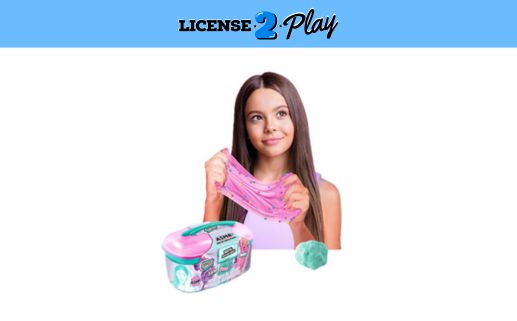
In the ever-evolving world of child development, one thing remains constant: the importance of sensory play. As toy retailers, understanding the significance of sensory play in early childhood development can be a game-changer. In this blog, we'll explore why sensory play is crucial for children's growth and offer suggestions for toy options that engage children's senses, allowing retailers to cater to this vital aspect of child development.
The Significance of Sensory Play:
Sensory play involves activities that stimulate a child's senses: touch, taste, smell, sight, and hearing. This type of play is not only fun but also fundamental for several reasons:
- Cognitive Development: The world around us is explored and made sense of through sensory play for children. As well as promoting critical thinking and problem-solving, it helps develop executive functions.
- Language Skills: Engaging multiple senses helps children learn new words and concepts, improving their language skills and allowing them to describe textures, colors, and sensations - enhancing their communication ability.
- Motor Skills: Activities that involve grasping, pouring, and manipulating materials in sensory play boost fine motor skills. Gross motor skills also benefit children as they move and explore their environment.
- Emotional Regulation: Sensory experiences can be calming, helping children manage emotions like stress or anxiety. It provides an outlet for self-expression and relaxation.
- Social Interaction: Sensory play often involves sharing materials and experiences with others, fostering social skills such as cooperation, sharing, and turn-taking.
Toy Options for Sensory Play:
Now that we understand the importance of sensory play let's explore some toy options that engage children's senses and allow retailers to cater to this essential aspect of child development:
- Texture Exploration Toys: Offer toys with various textures like soft, squishy, bumpy, or rough surfaces. Examples include textured balls, plush toys with different fabrics, or touch-and-feel books.
- Musical Instruments: Musical toys like xylophones, shakers, or toy drums engage a child's sense of hearing and rhythm, encouraging creativity and auditory development.
- Scented Playdough and Art Supplies: Scented playdough or scented markers can introduce children to different scents while they sculpt and create, stimulating their sense of smell and creativity.
- Water Play Toys: Water tables, bath toys, and float toys can make bath time a sensory adventure, engaging sight, touch, and even taste (for non-toxic options).
- Sensory Bins: Create themed sensory bins filled with materials like rice, beans, or sand. For hours of tactile exploration, add toys, scoops, and containers.
- Puzzle and Building Sets: Toys that require assembling or stacking, like wooden blocks or sensory puzzles, challenge a child's spatial awareness and fine motor skills.|
- Nature Exploration Kits: Encourage outdoor sensory play with kits for birdwatching, bug collecting, or gardening, engaging children with nature's sights, sounds, and textures.
Sensory play is not just child's play; it's a cornerstone of early childhood development. As toy retailers, embracing the significance of sensory play and offering a wide range of sensory toys can enhance young minds' development and your business success. By providing toys that engage children's senses, you empower parents and caregivers to support their children's growth through play, fostering a loyal customer base and promoting the holistic development of the next generation.
